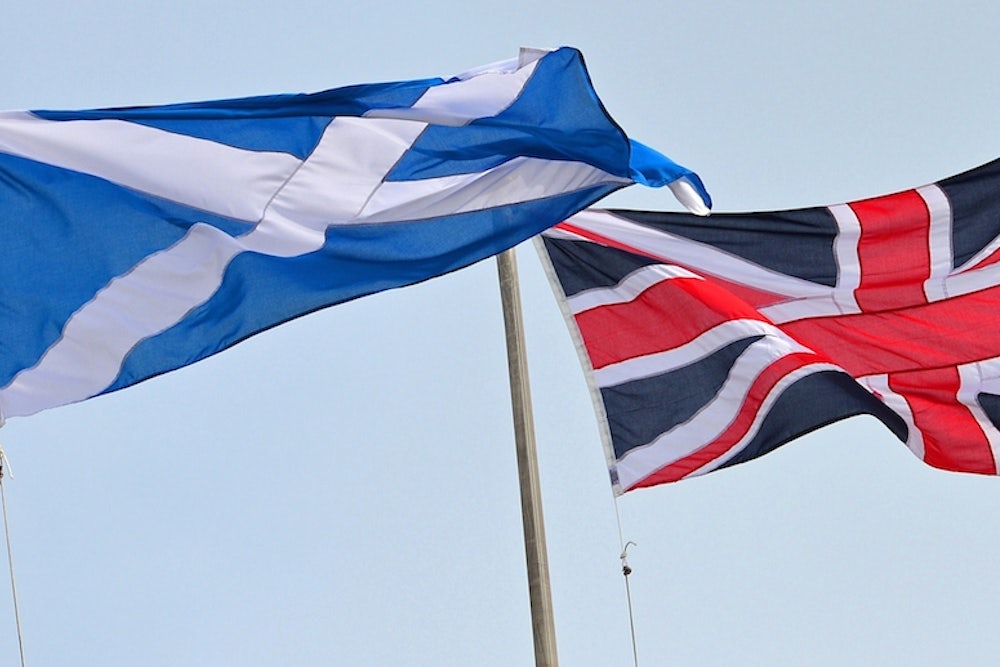Scotland stepped away from the edge on Thursday, choosing to preserve the 307-year-old Union with England after a hotly contested campaign that was too close to call. With 85 percent turnout, Scots voted no to independence by a margin of 55 to 45 percent. The Yes campaign, which had gained steam in recent weeks, won only four of Scotland's 32 councils, and the leader of the independence movement, Scottish First Minister Alex Salmond, even suffered a defeat in his home county of Aberdeenshire.
But even though the independence campaign failed, Alex Salmond still won. Not only did he lead a historic campaign further than anyone—himself included—could have imagined, but he also put Scotland in a position to reap the benefits of independence without the risks.
There’s some question over where the Scottish National Party will go from here; after all, the party’s entire platform is independence. But in the short term, Salmond will use the next weeks to negotiate “devo max” (maximum devolution of powers), the option he wanted in the first place. This would give the Scottish Parliament control over taxes, welfare benefits, oil revenues, national insurance, and pensions—in short, all the powers of an independent country without the costly issues of national defense and foreign affairs.
While Salmond has rejected devo max on the campaign trail in recent weeks, he advocated to include it on the ballot when the referendum was initially negotiated in 2012. British Prime Minister David Cameron refused, pushing for a single, straightforward question that he believed would settle the dispute once and for all.
But Cameron’s gamble backfired, and when a YouGov poll put the independence campaign ahead for the first time last week, he panicked, making a U-turn and promising devo max to Scotland if it remained in the Union. In essence, Salmond got exactly what he wanted. He must now ensure that Cameron does not renege on his promise now that Scotland has chosen to stay.
Yet there are already signs that this may happen. A BBC reporter tweeted Friday morning that sources within Westminster are suggesting that the new powers would be “an extension of existing responsibilities” rather than the promised devo max. The negotiations will be complicated—Cameron’s own party has threatened to revolt against his leadership should he agree to implement devo max—but with 1.5 million votes behind him, Salmond will now feel empowered to push Cameron to live up to his panicked pledge.
Numbers suggest that devo max is what Scots actually want. A June 2012 poll showed that a clear majority of Scots supported increased local power on nearly every issue, with over 60 percent of respondents favoring Scottish control of the economy, employment law, welfare benefits, and energy policy.
The independence campaign may have lost on Thursday, but Alex Salmond and the SNP did not. As negotiations open with David Cameron, just how much they can achieve remains to be seen.
